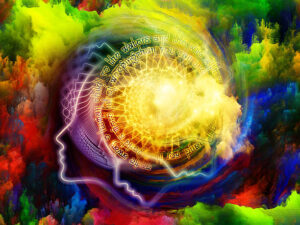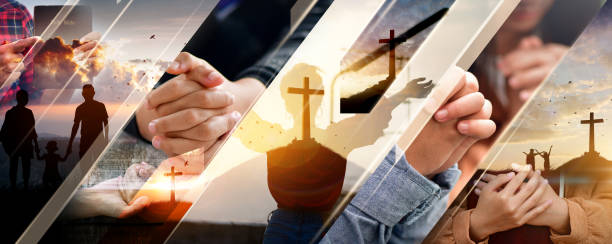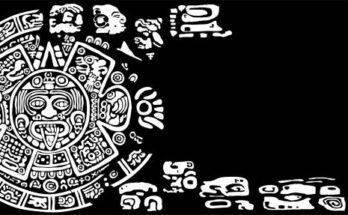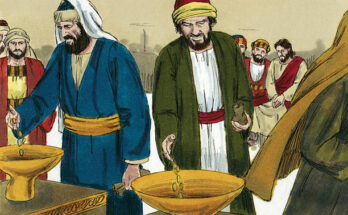Religion, a complex and multifaceted phenomenon, has been a fundamental aspect of human societies throughout history. From ancient polytheistic beliefs to modern monotheistic faiths, the diversity of religious expressions suggests a deep-seated connection between humans and the spiritual realm. While religious beliefs and practices have often been studied from cultural, sociological, and psychological perspectives, examining religion through the lens of evolution provides unique insights into its origins and functions. This article delves into the evolutionary perspective on religion, exploring how it may have emerged, persisted, and contributed to human survival and societal development.
Origins of Religion: Evolutionary Explanations
 (Photo from iStock)
(Photo from iStock)
One prominent evolutionary explanation for the origins of religion is rooted in the concept of natural selection. According to this perspective, certain cognitive and behavioural traits related to religious beliefs and practices may have conferred evolutionary advantages to early human communities. One such trait is the predisposition to ascribe agency to natural events.
In the ancestral environment, humans faced numerous challenges and uncertainties, such as predators, natural disasters, and the need to secure resources for survival. The tendency to attribute agency—perceiving intention and purpose—allowed early humans to navigate these challenges more effectively. For example, interpreting rustling in the bushes as a potential predator rather than mere wind could prompt a quicker and more adaptive response, enhancing the chances of survival.
Functions of Religion: Adaptive Advantages
From an evolutionary standpoint, the persistence of religion across diverse cultures suggests that it confers certain adaptive advantages. One such advantage is the role of religion in addressing existential concerns and providing a framework for understanding the world. Humans, confronted with the mysteries of existence and the inevitability of death, have sought meaning and purpose through religious beliefs.
Religion often offers explanations for the origins of the universe, the nature of life, and the ultimate fate of individuals. By providing a narrative that addresses these existential questions, religious beliefs may reduce existential anxiety and contribute to psychological well-being. This, in turn, could enhance the individual’s ability to cope with stress and adversity, ultimately benefiting their overall fitness.
Moreover, religion has been linked to the regulation of social behaviour. Many religious systems provide moral codes and ethical guidelines that shape individual conduct within a community. These moral frameworks serve to maintain social order and cooperation, contributing to the stability and success of social groups. In an evolutionary context, adherence to shared moral values could enhance the cohesion of a group, promoting collective well-being and survival.
Adaptations and By-products: The Dual Nature of Religion
 (Photo from iStock)
(Photo from iStock)
While religion may have evolved to serve adaptive functions, not all aspects of religious belief and practice can be easily explained as direct adaptations. Evolutionary processes can lead to the emergence of by-products—traits or behaviours that are not directly selected for but arise as a consequence of other adaptive features.
In the case of religion, certain cognitive biases that facilitated survival in ancestral environments may have inadvertently contributed to the development of supernatural beliefs. For example, the tendency to see patterns or agency in random events, known as apophenia, could lead to the perception of divine messages or interventions in everyday occurrences.
Additionally, the human capacity for theory of mind—the ability to attribute mental states to oneself and others—may play a role in the development of religious beliefs. The attribution of mental states to unseen agents or deities could be an extension of this cognitive ability, providing a framework for understanding the intentions and motivations of supernatural beings.
Cultural Evolution and Religious Diversity
As human societies evolved and expanded, so too did the diversity of religious beliefs and practices. Cultural evolution, driven by factors such as migration, trade, and contact with other societies, played a crucial role in shaping the rich tapestry of religious diversity observed today.
Cultural evolution operates on a different timescale than genetic evolution. Allowing for the rapid transmission and modification of religious ideas within and between societies. As cultures interacted, religious systems underwent adaptations, syncretism, and the incorporation of new elements. The diverse array of religious traditions worldwide reflects the dynamic interplay between cultural evolution and the adaptive functions of religion and perspective on religion.
Moreover, the evolution of human societies from small, close-knit groups to large, complex civilizations introduced new challenges and opportunities. In large-scale societies, religion often played a central role in promoting social cohesion and order. Complex societies with diverse populations required more elaborate moral frameworks and social institutions to maintain stability.
Religion and Human Flourishing
 (Photo from iStock)
(Photo from iStock)
Beyond its evolutionary roots, religion continues to play a significant role in contemporary societies. Influencing individuals and communities in various ways. While the adaptive functions of religion have been instrumental in human survival and societal cohesion. The impact of religion on individual well-being is a topic of ongoing debate.
For many individuals, religious beliefs and practices contribute to a sense of purpose, community, and moral guidance. The communal aspect of religious worship provides social support, fostering a sense of belonging and connection. Rituals and ceremonies often mark important life events, providing a framework for coping with transitions, grief, and existential concerns.
Additionally, the moral frameworks provided by religious traditions can guide ethical decision-making and contribute to the development of prosocial behaviour. Many religions emphasize values such as compassion, kindness, and charity. Promoting a sense of responsibility toward others and the broader community.
However, the relationship between religion and well-being is complex and varies across individuals and cultures. While some find solace and meaning in religious beliefs. Others may experience conflict, guilt, or distress due to doctrinal constraints or conflicting worldviews. Moreover, the role of religion in shaping societal norms. And values has been a source of both progress and contention throughout history.
Conclusion
An evolutionary perspective on religion offers valuable insights into the origins and functions of this complex human phenomenon. From its roots in cognitive mechanisms shaped by natural selection to its role in fostering social cohesion and cooperation. Religion has played a multifaceted role in human evolution.




